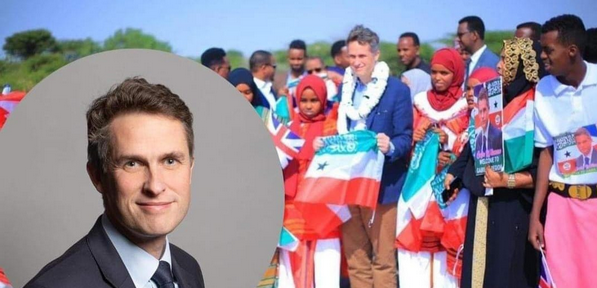The MOU includes wide scopes of cooperation in social, economic, political and military fields.
Following the scramble for Africa, Somaliland remained under British colonial rule and gained its independence on June 26, 1960. It is to be recalled that at that point in time many countries have given it recognition. However, five days later in the same year, Somaliland voluntarily became one with Mogadishu which had just gained its independence from Italy.
In 1991, Somaliland declared its independence once again and has since then been practicing democracy for 30 years holding a series of elections and peaceful transition of government. Some countries, including Ethiopia, have opened a consular office in Hargeisa. Nevertheless, Somaliland has not yet received full recognition. Despite this, it has signed agreements with various countries, including agreements for port development.
An MOU that was signed enabling 19 percent share of Berbera port for Ethiopia with other partners, is a proof of this fact. It is also known that other countries are following the same process. Yet there has been no murmur or complaint when this materialized. The recent MOU that has been signed which enables Ethiopia to gain a military base and access commercial maritime services through reciprocity and through a lease agreement is basically the same.
There has been a longstanding cooperation agreement between our country and Somaliland. The recently signed comprehensive memorandum of understanding for partnership and cooperation reflects efforts made by the two parties to further strengthen their friendship and respond to the historic questions of both parties. It will also facilitate a strategic partnership in a sustainable manner based on clear details and transparency.
For Somaliland, the MOU enables them to acquire the type of assistance and partnership they cannot get from any other country and also responds to their longstanding demands.
As it pertains to our national interests, it is clearly outlined in our foreign policy that we give priority to our neighbors. In this way, we seek to find solutions to our neighbors’ problems by working together. We are committed to sharing and jointly developing natural endowments towards fulfilling the vision and aspiration we have for developing together. It also creates an opportunity to safely protect and advance our existence and national interests.
In its long and medium term as well as recent history, our nation had direct access to the sea. Through intricacies from far and near, we had however lost this access, and later regained it. In the end, a civil war which lasted for three decades fomented by internal crisis and foreign conspiracy occurred. At the end of the civil war and through both a historical and legal mistake, the country has remained landlocked for the past 30 years.
In the last five years, in order to correct this fracture of history and the frustrations of our people, the new government pursing reforms has been deliberating upon ways of expanding sustainable and reliable port and sea access options that suit the status and growth of our country.
Following further ideation, this proposal was recently announced to Ethiopians at large and the international community as the official position of the government.
The position announced by the government is strongly rooted in a desire to not engage in war with any one; to ensure that the options pursued are mutually beneficial to all stakeholders and also expresses Ethiopia’s readiness to share its endowments. Accordingly, we have made great effort to explain our position to all who are able and willing to listen.
Consultations and negotiations on mutual benefits have been going on with Somaliland for months now. Therefore, a Memorandum of Understanding has been signed for the benefit of both parties. This document gives Ethiopia the opportunity to obtain a permanent and reliable naval base and commercial maritime service in the Gulf of Aden through a lease arrangement, and according to the government’s announced position, it allows Somaliland to derive an equivalent share of the lease from Ethiopian Airlines. Beyond that, it also includes provisions for the Ethiopian government to make an in-depth assessment towards taking a position regarding the efforts of Somaliland to gain recognition.
The natural endowments that our region is endowed with are more than enough for all of us. It is not possible to create a better tomorrow by denying cooperation under the veil of insecurity or wickedness. The agreement with Somaliland is a demonstration of the government’s belief in achieving Ethiopia’s aspirations through cooperation with its neighbors, through the principle of reciprocity, and through peaceful means. This opportunity is open to all and remains open.
The MOU has created an opportunity to cure the decades old stress and anxiety of Ethiopians. Therefore, it is a historical event that has made Ethiopians happy. This is also an event that should please all Ethiopians and friends of Ethiopia, as well as all members of the international community who desire for peace to reign in the region.
No party or country will be affected by this MOU. There is no broken trust nor is there any laws that have been transgressed. While this is the fact, it cannot be said that some will not be offended, shocked and refrain from attempting to destroy the positive progress.
Therefore, Ethiopians in particular must believe that we will be respected only when our nation asserts its proper place in the region, continent and the world; and when it plays its constructive role and upholds its national interests. Therefore, the FDRE government calls upon all Ethiopians to use this opportunity for elevation by putting aside our differences and letting the spirit of tolerance govern us.
As this is a once in a lifetime historical occurrence, let us use this opportunity to save our country in unison! Let us work together to make our Ethiopia a symbol of elevation by ceasing to pull one another down, so that we may not be blamed in the annals of history.
January 3, 2024
Addis Ababa
Government Communication Service





















